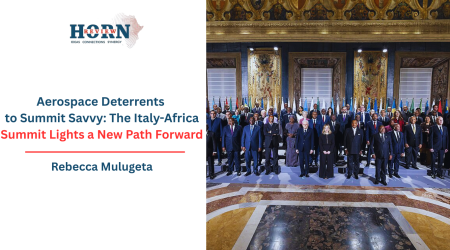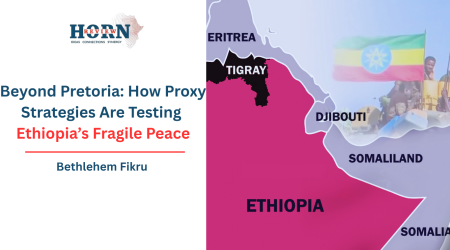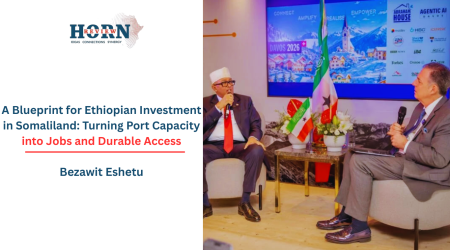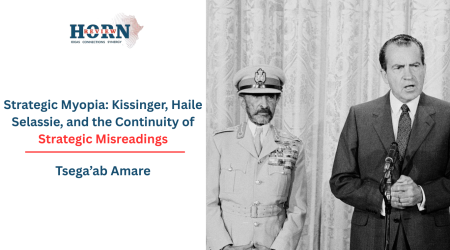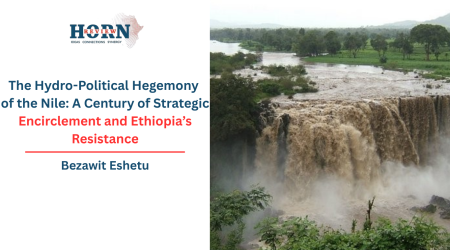
11
Oct
Ethiopian Defence Force alacrity and the Port of Assab
Resolution or Confrontation?
The question of Ethiopian access to the Red Sea is not a subject for debate but a geographical, historical, and strategic peremptory whose time for resolution has arrived. This is not a matter of expansionism, however of national restitution which is a correction of a historical anomaly that has constrained the destiny of a nation. The Ethiopian Defence Force, as the guardian of the nation’s sovereignty and the executor of its strategic will, has rightly motioned its readiness to transform this necessity from aspiration into reality. To misunderstand this resolve, or to oppose this necessity, is to fundamentally misconstrue the ambit of the Horn of Africa.
For centuries, the Red Sea was an integral part of Ethiopia’s economic and security structure. The 1950 UN Resolution that federated Eritrea with Ethiopia did not grant Ethiopia access to the sea but it formally recognized a pre existing reality. The separation in 1993 created a political border but severed a geographical and historical extremity. The consequence has been a three decade long strategic vulnerability. A landlocked power is a contradiction in terms, and Ethiopia can no longer tolerate this condition. To frame this as an aggressive desire is to wilfully ignore the basic facts of economic survival and sovereign right.
The Ethiopian Defence Force’s declaration is not reckless saber rattling. It is the utterance of a national duty. Its primary function is to secure the vital interests of the state, and there is no interest more vital than securing sovereign access to the sea. This is the logical culmination of its institutional purpose. The Force’s posture is one of disciplined readiness, a clear message to all regional actors that the era of indefinite postponement is over. Diplomacy remains the preferred avenue, but for diplomacy to be effective, it must be conducted from a position of unassailable strength and demonstrated capability. The Defence Force provides that foundation, ensuring that Ethiopia’s negotiations are not perceived as pleas, but as the articulation of non-negotiable necessities.
Within the domestic sphere, the quest for the Red Sea has evolved far political confab into a measure of national commitment. It is the test for patriotism in this generation. The call for the sea is not the policy of a single party or individual and it is the manifest destiny of the Ethiopian state, a cause that goes ephemeral political squabbles.
Therefore, any Ethiopian who actively opposes or seeks to undermine this national project places themselves in direct opposition to the nation’s core interests. Such a position is an act of conveyance from the historical continuity and future survival of the state. It aligns, whether intentionally or not, with the forces that seek to perpetuate Ethiopia’s strategic confinement. There is no middle ground on matters of existential importance, one is either for the nation’s fulfilment or against it.
The opposition from certain quarters, dismissing these legitimate claims as political hogwash, only serves to validate the necessity of a firm stance. These dismissals are not arguments, they are symptoms of a status quo that has long benefited from Ethiopian constraint. They mistake Ethiopia’s decades of patience for weakness, and its preference for diplomacy for a lack of resolve. The failure to implement key provisions of the Pretoria Agreement, particularly the withdrawal of foreign forces, further illustrates the eccentricity of the current arrangement and displays the imperative for Ethiopia to secure its own interests by its own means. Relying on the goodwill of neighbors who are openly hostile to our fundamental needs is a strategy of the past.
The question is no longer if Ethiopia will secure its access to the Red Sea, but how and when. The Ethiopian Defence Force has stated its capability to ensure the how. The when is now a function of political will and regional comprehension. Ethiopia’s return to the sea is an historical inevitability, dictated by geography, demanded by economics, and now guaranteed by the resolute will of its people and the unmatched readiness of its military. This is the final chapter in the consolidation of Ethiopian sovereignty, and it will be written. The nation is united, the institution is prepared, and the cause is just. There is no other outcome.
By Samiya Mohammed, Researcher, Horn Review

